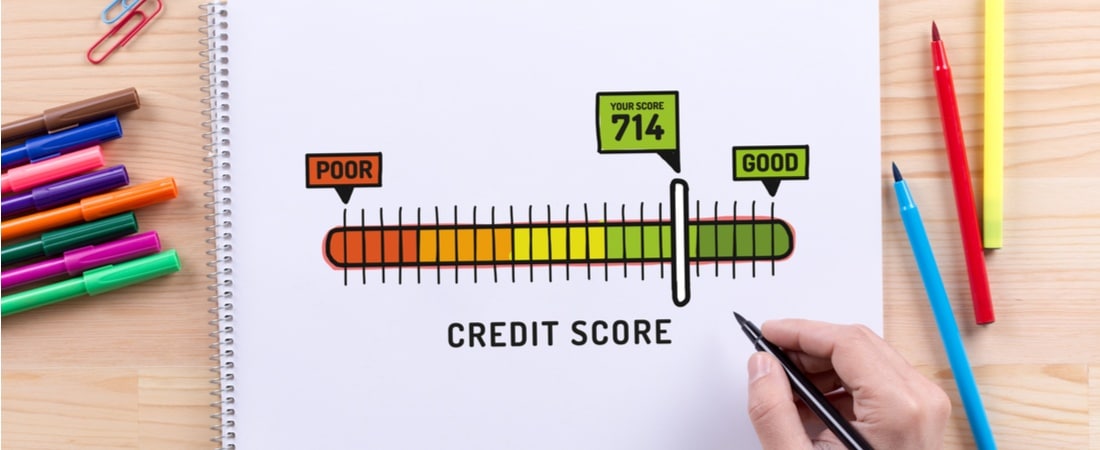The average American has more than $9,000 in credit card debt. While having a credit card isn’t a bad thing, letting credit card debt pile up over time can place an enormous strain on your finances. Take a look at the articles, Q&A’s, blog posts and videos we have linked to this topic for ideas on how to handle credit card debt and your personal finances.
VIDEO: How Can You Help Better Protect Yourself Against Identity Theft?
In a 5-part series, Credit 101, Ilyce Glink, an award-winning personal finance columnist and CEO of the financial wellness platform Best Money Moves, details important information you need to know about your credit reports and scores. Create a myEquifax account (at www.myEquifax.com) to receive six free Equifax credit reports every 12 months. Watch [...]
VIDEO: How Are Credit Scores Calculated?
In a 5-part series, Credit 101, Ilyce Glink, an award-winning personal finance columnist and CEO of the financial wellness platform Best Money Moves, details important information you need to know about your credit reports and scores. Create a myEquifax account (at www.myEquifax.com) to receive six free Equifax credit reports every 12 months. Watch [...]
Credit 101: How Are Credit Scores Calculated?
As we move into 2020, credit continues to be a buzzword for consumers, but many people are unsure what part credit plays in their personal finances. In a new 5-part series, Credit 101, Ilyce Glink, an award-winning personal finance columnist and CEO of the financial wellness platform Best Money Moves, details important [...]
Mortgage Delinquency is Down, Credit Delinquency is Up
Mortgage delinquency rates are down, credit delinquencies are up. CoreLogic reports 30-day-plus delinquency is the lowest it’s been in over a decade. It’s a good news, not-so-good news situation. First, the good news: More people are paying their mortgages on time. Unfortunately, credit delinquencies are up as more people are having trouble getting their [...]
Cancelling Credit Cards to Get Cash Out Refinance
Cancelling Credit Cards to Get Cash Out Refinance. You have an excellent credit score, great credit history, plenty of equity, and yet lender wants borrower to cancel many of his credit cards to qualify for a refinance. Q: I have a situation in my mortgage refinance process and need your advice. My lender wants me [...]
Using Home’s Equity To Pay Off Credit Card Debt
A homeowner has already used her home's equity to pay off credit card debt. Now the credit card debt is run up again but she needs a home equity loan to pay for home repairs. Credit counseling might be in order to get the credit card debt under control before this homeowner thinks about home improvements.
Negotiating Repayment Of Credit Card Debt
Negotiating repayment of credit card debt can impact your credit score and your tax bill. One problem with offering credit card companies less than what you owe them is that you may have a hefty tax bill because the IRS views the settlement as "phantom income." If you negotiate and settle with your creditors, be prepared to pay the tax bill the following year. You should also - as part of your final agreement - get the credit card company to report your balance as "paid as agreed" or "paid in full."
Use Cash Savings To Pay Off Credit Card Debt
If you've found yourself in a situation with a large amount of credit card debt and cash on hand, take the cash to pay off the credit card debt. While it might be nice to think you have a cushion of cash for an emergency, there's no point in paying high credit card interest rates when you have the cash to pay it off. If you simply pay off the debt, and then start to "repay" yourself with the savings, you'll quickly replenish your cash savings.
Real Estate Minute: Credit Card Debt Rising
Real Estate Minute with Ilyce Glink Credit Card Debt Rising Original Air Date: August 15, 2006
In-Laws Headed For Bankruptcy Court
What can you do when a family member's finances are out of control? Sitting down and discussing numbers can help when you learn a family member has significant credit card debt and out-of-control spending habits.





